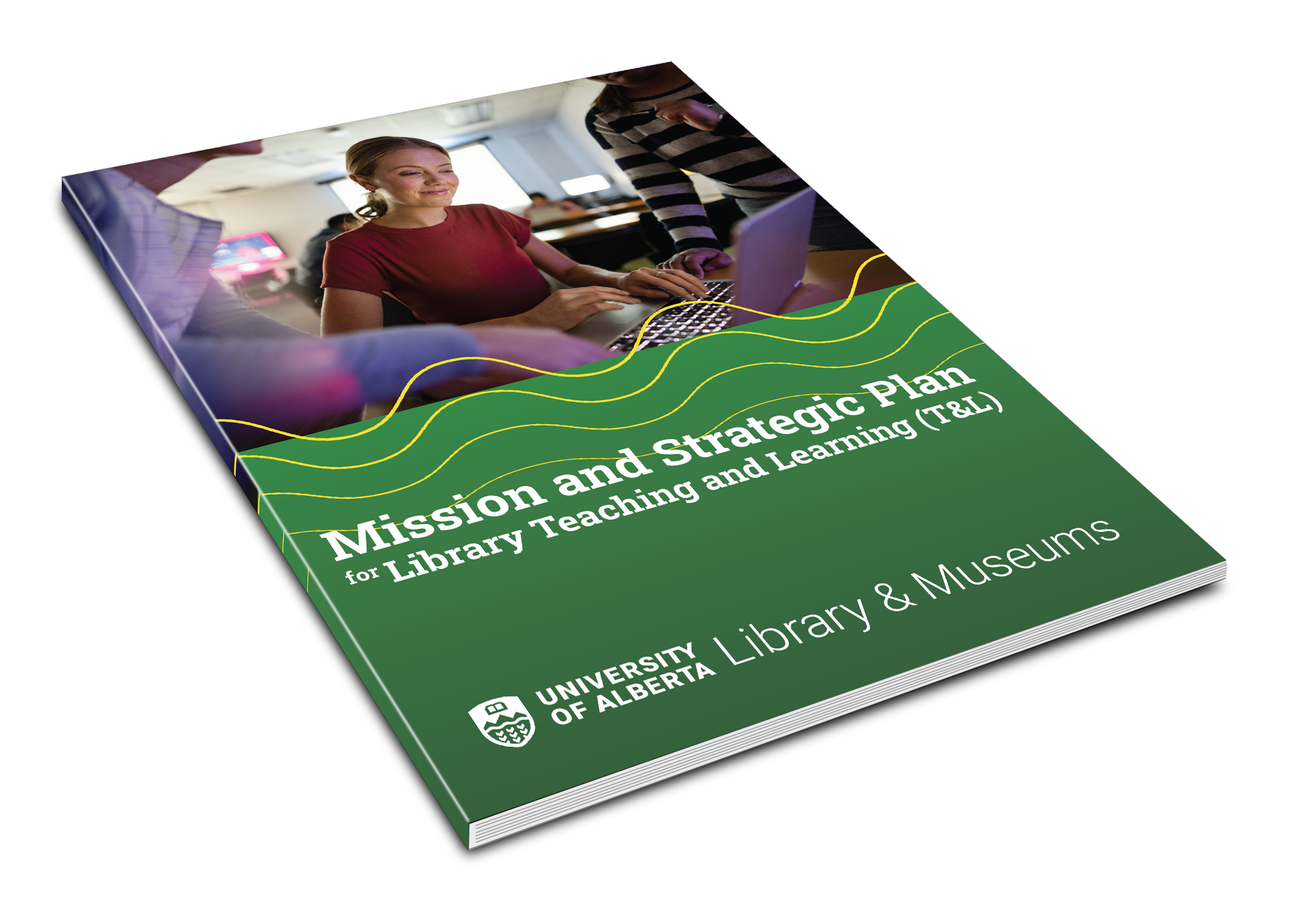Teaching + Learning
Book a Library Instruction SessionLibrary Teaching and Learning
We collaborate with course instructors and campus partners to help our users find, evaluate, cite, create and communicate information resources through:
Online instructional resources and services Program/course integrated instruction Workshops Library Teaching and the Research Life CycleTeaching Support for Instructors
Online Instructional Resources & Services
- Tutorials - Please browse our tutorials to see if any would be suitable for your course needs. If you would like to request the creation of a custom tutorial, tip sheet, etc. please get in touch with your subject librarian.
- Online Instruction - Our subject librarians can offer live, online instruction within your course or simply sit in one of your synchronous classes for a “virtual coffee” or Q&A session with a librarian.
- Subject Guides - These subject-specific guides provide students and course with library collections and resources related to their course or research.
Program / Course Integrated Instruction
Instructors are invited to contact their subject librarians to discuss library instruction options for their courses. Not sure who aligns with your course or topic? AskUs! Please submit a request as early as possible to help with planning. We recommended booking at least 3 weeks in advance. Subject librarians welcome opportunities to work with instructors on projects such as:
- individualized or classroom instruction in information retrieval, critical evaluation of information/misinformation and research skills
- designing assignments that incorporate information literacy and introducing related literacies (e.g., data literacy, primary source literacy)
- identifying and providing instruction on how to access, use, and evaluate relevant resources
Other topics include, but are not limited to: archival research, industry information, cartographic and GIS materials, data and statistics, citation and citation management software (e.g. Zotero), research impact and conducting systematic reviews.
Book a Library Instruction Session
Workshops
We offer workshops outside of class time to a variety of audiences in our campus community. The following list highlights the range of regularly occurring workshops: Getting started with...
- Library Essentials
- Generative AI
- Database Search Strategies
- Evaluating Information & Misinformation
- Citation & Reference Management
- Citational Justice
- Advanced Searching for Literature Reviews
- Digital Scholarship
- Information Literacy & Indigenous ways of Knowing
- Research Impact
- Terracotta True Scale: Deep Time, Maps and their Spatial Literacies.
- Academic Publishing
Library teaching and the research lifecycle
In addition to supporting student success as part of the academic curriculum, the library offers workshops that introduce researchers to invaluable tools, services, and skills required at each phase of the “research lifecycle”.
These include a wide array of sessions, workshops, and asynchronous learning objects developed and taught by subject librarians and colleagues working in areas of the Library such as:
- The Digital Scholarship Centre (DSC)
- Archives and Special Collections
- Publishing and Scholarly Communications
- Copyright
- Research Data Management and Research Impact
Check our calendar for upcoming workshops or AskUs about connecting with library staff who teach in these areas.

"The Research Lifecycle". Navigating the Research Lifecycle for the Modern Researcher by Brianna Buljung, Emily Bongiovanni and Ye Li is licensed under a Creative Commons Attribution-NonCommercial 4.0 International License, except where otherwise noted.
Teaching Support for Instructors
- Reading List/Course Materials - Course readings can be made available to students online with persistent links or in print in the course materials section of your library.
- eClass Integration - Access custom library resources directly from your LMS course!
- The Copyright Office provides guidance related to course readings and other teaching materials.
- We can help you find, create or adapt openly available Open Educational Resources.
Digital Literacy
“The ability to use information and communication technologies to find, evaluate, create, and communicate information, requiring both cognitive and technical skills” (Digital Literacy Taskforce, 2011). It has also been expanded to include concepts such as misinformation, privacy and the ethical use of online sources and will likely “continue to evolve to become the metaliteracy term which involves both the current capabilities, as well as AI literacy, algorithmic literacy, data literacy, and technological literacy” (Palmer, 2023).
Critical Information Literacy
Critical information literacy (CIL) is a theory and practice that considers the sociopolitical dimensions of information and production of knowledge,and critiques the ways in which systems of power shape the creation,distribution,and reception of information...critical information literacy can be seen as an approach to information literacy informed by critical theory, and often times critical pedagogy (Drabinsky & Tewell, 2019).
For reference list see our Mission and Strategic Plan for Library Teaching and Learning

Mission
We cultivate learners’ confidence and curiosity by helping them build knowledge and skills in digital and critical information literacy for academic and professional success; we support lifelong learning and ethical citizenship.
more about our mission & goals more about digital & critical information literacy
Contact Us
For questions or to learn more about T&L team activities, please contact us at: library.teachingandlearning@ualberta.ca